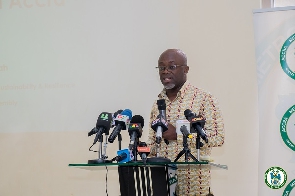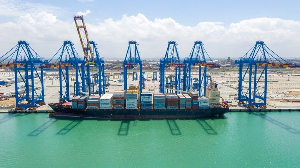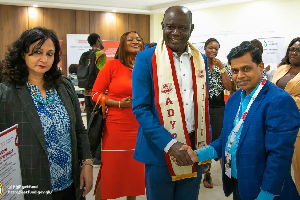African leaders must invest in efficient and zero-carbon transport and energy systems, and technologies to minimise air pollution, Mr. Desmond Appiah, the Ghana Country – Lead, Clean Air Fund (CAF), has said.
According to him, transport and energy systems powered by renewable energy could save lives, and reduce costs in vulnerable countries hardly hit by the climate crisis.
He noted that air pollution had impacted Africa’s fastest-growing cities namely: Accra, Cairo, Johannesburg, and Lagos, due to the uncontrolled activities of humans and other related factors.
Mr Appiah disclosed this on Friday at Goaso in the Ahafo Region, in a briefing with the Ghanaian Times on the topic, “shaping the 27th Conference of Parties (COP 27) around African climate, health and transport priorities.”
The Country-Lead noted that the world’s poorest populations made most of their daily journeys by walking, often on dangerous roads, which exposed them to high levels of air pollution, coupled with limited access to healthcare facilities.
Mr Appiah said a study on the aforementioned four African fastest-growing cities had projected a total cost of USD$ 115.7 billion between 2023 and 2040, relating to air pollution, if nothing was done urgently.
“These giant African cities could save 125,000 lives, unlock USD$ 20 billion, and cut greenhouse gas emissions by 20 percent.
“In Ghana, air pollution was reported by the World Bank to be costing the economy close to USD$ 2.5 billion every year. The amount can be used to invest in other sectors of the economy,” he stressed.
The Country-Lead entreated policymakers in the African continent to prioritise safe and active public transport, and clean energy in planning and infrastructure decisions to reduce emissions, and increase health benefits.
Mr Appiah told African governments to recognize that transport and energy problems were also public health, and must develop joint policies on climate change, clean energy, and sustainable transport to save the continent.
He said the private sector played a crucial role in combating air pollution while businesses' engagement with the menace was minimal, adding that individuals and institutions must contribute their part.
The Country-Lead stated that CAF, a philanthropic initiative tackling global air pollution through grants and projects, needed more funding and closer collaboration to clean air for the benefit of mankind and the environment.
Mr Appiah indicated that Clean Air Fund would continue to promote air quality data, build public awareness, and influence policy-making, saying that “we invest in partners globally who are ready to make an impact on the ground.”
“I am overseeing the implementation of CAF’s strategic plan in Ghana to build collaborative partnerships for research, policy development, and support actions to promote clean air for all,” he emphasised.
The Country-Lead was optimistic that building sustainable transport and energy systems would free up billions of dollars from associated negative health impacts, for investment in other areas of the continent.
General News of Wednesday, 23 November 2022
Source: ghanaiantimes.com.gh













